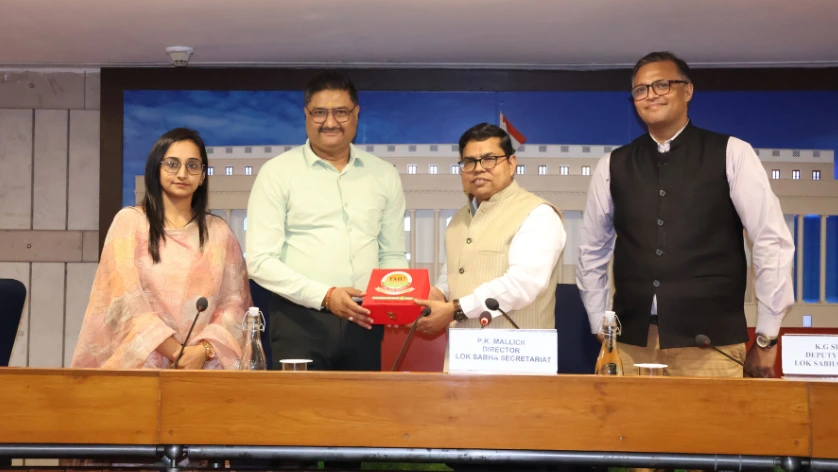Parliament Visit by TMU Students: A Learning Experience
On October 21, 2024, and October 23, 2024, a group of MBA final-year students from Teerthanker Mahaveer University’s TMIMT College of Management, Moradabad, embarked on a journey to explore the beating heart of Indian democracy: the Parliament of India, under the PRIDE (Parliamentary Research and Information Support to Develop and Enhance) scheme. This visit aimed to offer students an immersive experience of governance, public service, and legislative processes.
Overview of the PRIDE Scheme
The PRIDE scheme facilitates study tours to Parliament for educational institutions, offering students firsthand exposure to democratic practices and the legislative framework.
Objectives of the Visit
The primary goal was to deepen students' understanding of the Indian parliamentary system, inspire civic responsibility, and connect theoretical knowledge with real-world governance.
Highlights of the Visit
Exploring Lok Sabha and Rajya Sabha Chambers
Students were captivated as they entered the Lok Sabha and Rajya Sabha chambers. The grandeur of these spaces, where significant national debates take place, left a lasting impression.
Experiencing the Central Hall’s Historical Legacy
The Central Hall was a poignant highlight. This iconic venue witnessed the transfer of power from the British to India in 1947, making it a symbolic site of India's independence and democratic journey.
Visit to Parliament Museum and Library
The museum showcased artifacts and exhibits chronicling India's legislative history, while the library, the second-largest in India, housed rare manuscripts and the original copy of the Indian Constitution.
A Day Filled with Insights and Memories
Briefing Session with Shri P.K. Mallick
The day began with an engaging session led by Shri P.K. Mallick, Director of PRIDE, who shared valuable insights into parliamentary functions and governance.
Key Takeaways from the Session
- The importance of policy-making in shaping India’s future.
- The role of Parliament in representing the voice of the people.
- Encouraging student participation in civic and political processes.
A Glimpse of Parliamentary Protocols and Security
The visit also offered a firsthand experience of the meticulous protocols and stringent security measures followed within Parliament, adding to the students’ learning.
Impact of the Visit on Students
Inspiring Civic Engagement and Patriotism
Walking through the corridors of power instilled a profound sense of patriotism and responsibility among students, inspiring them to contribute to society actively.
Connecting Classroom Learning with Real Governance
The visit bridged the gap between academic learning and practical governance, enriching students' perspectives on public policy and legislation.
Acknowledgments and Gratitude
Role of PRIDE Officials in the Visit
Special thanks to Shri P.K. Mallick and his team for their dedication in organising the visit. Their guidance made the experience insightful and memorable.
Support from TMU Administration
The TMU administration, led by the Chancellor, Vice-Chancellor, and other key officials, played a pivotal role in facilitating this visit. Their unwavering support ensured its success.
Conclusion
The study visit to Parliament was more than just a trip—it was a transformative experience. Students walked away with not only enhanced knowledge but also a renewed sense of responsibility toward their country. This lifetime opportunity emphasized the importance of active citizenship and the role of public service in shaping India's future.
FAQs
Q1: What is the PRIDE scheme?
Ans: The PRIDE scheme is an initiative by the Parliament of India to promote awareness of democratic processes by organising educational visits for students and institutions.
Q2: How does visiting Parliament enhance student learning?
Ans: Such visits provide practical exposure to governance and legislative procedures, bridging theoretical concepts with real-world applications.
Q3: What key sites were visited during the study tour?
Ans: The Lok Sabha, Rajya Sabha, Central Hall, Parliament Museum, and Library were among the major highlights of the visit.
Q4: How is the Parliament Library significant?
Ans: The library houses rare manuscripts, including the original copy of the Indian Constitution, and serves as a treasure trove of knowledge and history











